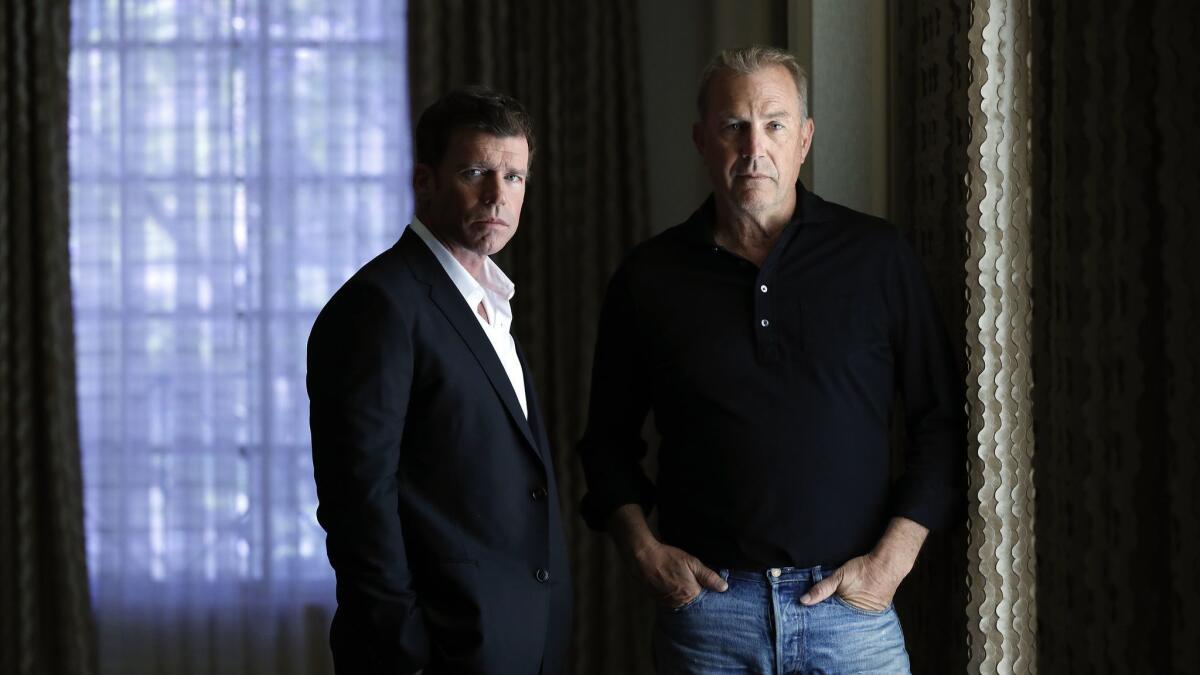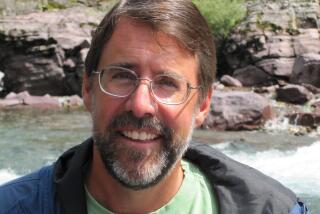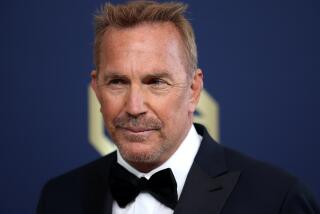Taylor Sheridan and Kevin Costner examine another dark side of America in ‘Yellowstone’

If you look at the careers of Taylor Sheridan and Kevin Costner, one might reasonably conclude that the two were destined to work together. That destiny has been fulfilled with “Yellowstone,” a drama series premiering Wednesday on the Paramount Network.
Costner and Sheridan are both accomplished actors who became writer-directors. And though they come from different generations, both have been drawn toward deconstructing and reexamining mythologies of the American West in their work.
On one hand, there’s Sheridan, whose Oscar-nominated screenplay for 2016’s “Hell or High Water” and his 2017 picture, “Wind River,” look unsparingly at the harsh realities and conflicts of a rustic way of life along the country’s wide-open but unforgiving Western frontier.
On the other is Costner, who, with the Oscar-winning 1990 film “Dances With Wolves,” imagined a more humanistic sort of western on the way to a career marked by such Americana touchstones as the baseball metaphysics of “Bull Durham” (1988), the epic cowboy legend of “Wyatt Earp” (1994) and the History Channel’s 2012 miniseries “Hatfields & McCoys,” which expanded on the folkloric family rivalry.
As Sheridan and Costner share a table during a recent lunch at the Sunset Marquis in West Hollywood, the mutual admiration that led to “Yellowstone” is no less noticeable than the late spring sun.
“There’s a lot of similarities in the way that Kevin and I story-tell, and, of course, he started storytelling first, so a lot of it influenced me greatly,” Sheridan says, going on to describe a harrowing moment from “Dances With Wolves” that wouldn’t seem out of place in one of his own grim narratives.
“When John Dunbar goes to receive his post, and there’s the colonel who’s going insane at the edge of the prairie,” he says, eyeing Costner across the table. “He was somehow disgraced on the front lines or never got to go to the front lines and drank himself into oblivion — ”
“He was passed over. He thought after the war that he was going to be in Washington,” Costner interjects.
“And here he is in hell,” Sheridan says.
Costner recounts how his movie deviated from the Michael Blake novel that inspired it, with the officer’s harrowing end, and the two directors pore over details of the stand-out moment. “He captured that scene authentically,” Sheridan says. “I still remember sitting in the theater and watching it.”
Authenticity is a driver for the 48-year-old Sheridan, who grew up on a ranch outside Waco, Texas, and in recent years has lived in Wyoming. In a heather gray T-shirt with “Cowboy” across the front and the weathered, sturdy bearing of a man who could maybe break a stallion before his next meal, Sheridan looked to the changes he’s seen in the mountain West for inspiration in “Yellowstone,” which centers on power, ranching, land development and the dark deeds men will do to further all three.
But it’s not a story Sheridan sees as unique to Montana.
“These issues of land development, resource mismanagement, oppression and extreme poverty and inequity in government — they exist here,” he says. “But when it happens in a small area, in a rural area ... and because there’s fewer people, the consequences seem much more acute.
“When you start seeing Costcos in a landscape of farms and ranches, it’s much more dramatic than if they jam one in the San Fernando Valley.”
“Yellowstone” marks the first regular series role for Costner as he takes on the part of powerful ranch owner John Dutton, whose stature mirrors that of a feudal lord in his rural community. In that mix are conflicts with Native American interests, corporate developers (along with, presumably, those big-box stores) and, of course, the cattle, which require the same tending they would have if the series were set some 150 years ago.
Costner cited the “command” of Sheridan’s writing as what drew him to “Yellowstone.”
His Dutton is frequently embroiled in efforts to maintain that livelihood that aren’t always consistent with what television would call “a good guy.”
“This hero may do things you don’t really like — and I like my heroes to do things you don’t like, because then you question them,” Sheridan says.
“He lives in the gray right now. I don’t think he’s a person in his mind that lives in the gray, but I think he has to right now in order to get things done,” adds Costner, whose connection to the role is such that he at times lapses into the first person when talking about Dutton.
He adds, “Taylor and I spent a lot of time talking about that, because I’ve got to get my arms around certain things. I gotta play him, I can’t play somebody else, but I can live with myself as a character based on scenes written.”
Sheridan had previously sent scripts to Costner for other projects, but the timing didn’t align until “Yellowstone,” which is the Paramount Network’s first scripted drama series. Though there were reports of a bidding war, Sheridan says he was drawn to the creative control the network promised.
“None of us really had any interest in just doing another series,” says Sheridan, who wrote and directed each of the show’s 10 episodes. “We wanted it to feel fresh and current, but we also wanted it to be a throwback to these great John Ford films of the ’40s and ’50s.
“Kevin and I sat down and said to Paramount, ‘We have no interest in making a TV show, but we’ll make a really long movie for you, if you want that,’” he says.
At the Television Critics Assn.’s winter meetings in Pasadena, head of development Keith Cox called the series “everything we want the Paramount Network to be.” True to Sheridan’s description, the feature-length first episode plays like a film.
The drama features sweeping, awe-inspiring views testifying to the region’s “Big Sky Country” nickname, patiently woven storylines and a tangle of intrigue from multiple sides, including the Dutton heirs, who include the black sheep (Luke Grimes), the family’s calculating attorney (Wes Bentley) and, in a shift from Sheridan’s typically hyper-masculine worlds, a daughter (Kelly Reilly) raised among these men who may be the smartest — and most ruthless — of them all.
“As you learn more about that character, she could very well be the best thing I’ve written,” says Sheridan, who cited Angelina Jolie’s preference for flipping the gender on characters as partial inspiration. “I truly tried to write a character that if I changed the name Beth to Ben, you wouldn’t have to change anything.”
Although both say their biggest worry about “Yellowstone” is finding an audience in the sprawling, on-demand TV landscape, Costner balks at the idea that success is a foregone conclusion just because of the show’s ingredients.
“It’s all in execution. If [Sheridan] gets these situations, if he builds this architecture where somebody sees themselves for a moment in this — that’s hard work,” he says.
“This isn’t the smart play, to do a thing about modern ranching. I’m sorry. It’s not the smart move,” he adds with a wry smile. “If you want to do something without any resistance, you do something that smells like something else.”
“When people see this, I think they will realize, ‘Even though that’s such a different world, I see a lot of similarities in the problems, I see a lot of similarities in the conflicts. Even though their way of life is so alien to me, we’re not that different,’” Sheridan says. “And we aren’t.
“But anytime you can remind people of that, I think it’s a good thing.”
See the most-read stories in Entertainment this hour »
Follow me over here @chrisbarton.
ALSO:
Jon Stewart defends Samantha Bee in return to stand-up at San Francisco’s Clusterfest
‘Sex and the City’ turns 20: How the HBO series revolutionized TV and dating forever
More to Read
The complete guide to home viewing
Get Screen Gab for everything about the TV shows and streaming movies everyone’s talking about.
You may occasionally receive promotional content from the Los Angeles Times.







